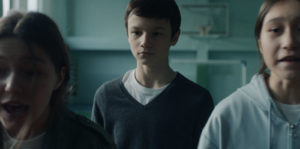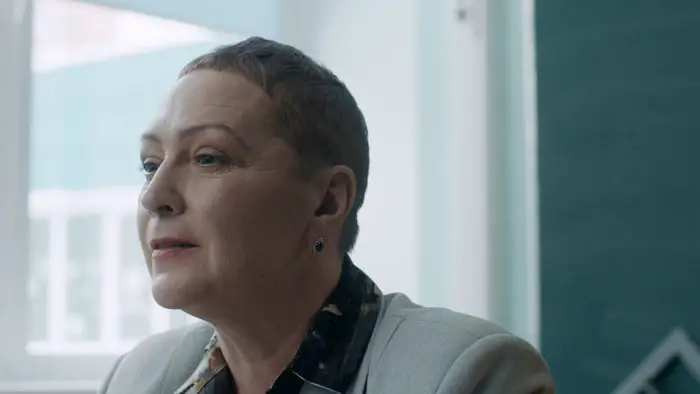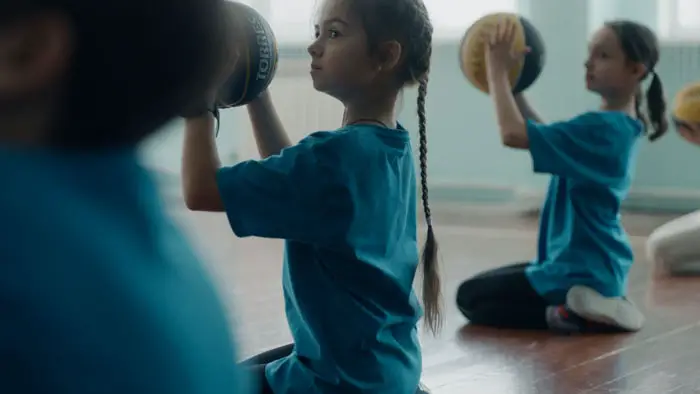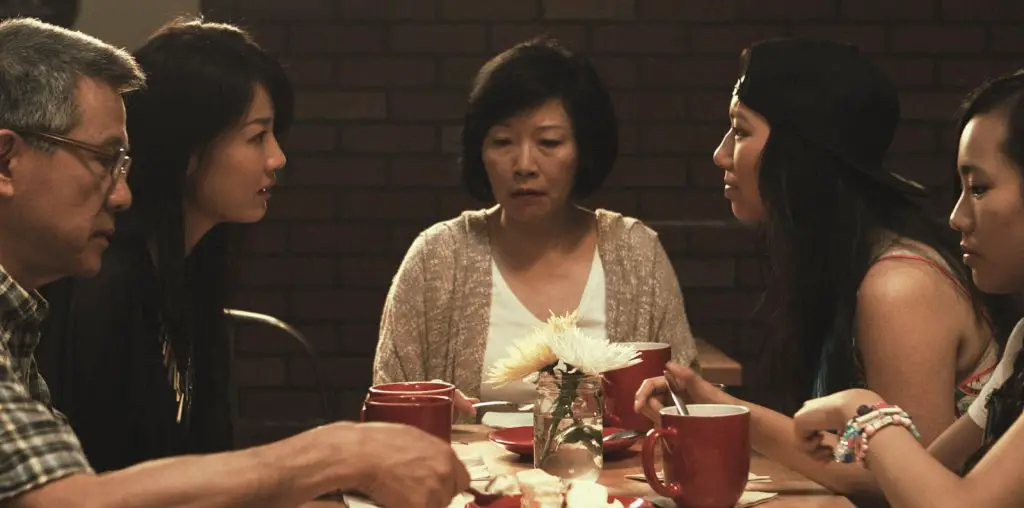
Demitri Zujew’s Crease (ЗАЛОМ) opens in a celebrated and well-ordered school. Its principal proudly extols her school’s successes to a television crew. She has won the “Principal of the Year” award. She attributes her school’s top ranking to progressive methods, such as “Passport Socialization,” a system where students are grouped to foster lasting academic and social bonds. She goes on about how the students have supported Petya, a boy once labeled with special needs, who is now a celebrated math athlete.
However, away from the spotlight, Petya becomes the target of relentless bullying by his classmates. Nicknamed “Rainman,” he is mocked and pelted with basketballs during recess. Max, another student, initially resists joining in but is soon coerced into the “fun” to maintain his social standing. The classroom becomes a battleground for dominance where the strongest dictate the rules, creating a hidden culture at odds with the principal’s televised narrative.

“The classroom becomes a battleground for dominance.”
Though set in Russian, Crease shows that schools across the globe often prioritize test scores and statistics over the actual experiences of students, leaving faculty and staff blind to what’s really happening. As everything at the school appears to run perfectly, the students live in a different world. This socialization then contributes to the peer pressure for students not just to conform but to compromise what they know is right and wrong.
If you’ve ever been a kid, it’s not so hard to believe that the principal has no idea what is really happening with the students. Written and directed by Demitri Zujew, Crease highlights this duality. He also nails the tone with his dark blue color palette.
Crease quietly slams the textbook shut on the myth of a perfect school, exposing the bruises behind the gold stars. Demitri Zujew’s lens captures a chilling truth: it’s not always the tests that kids fail, but the moral lessons ignored in plain sight.

"…the bruises behind the gold stars."

